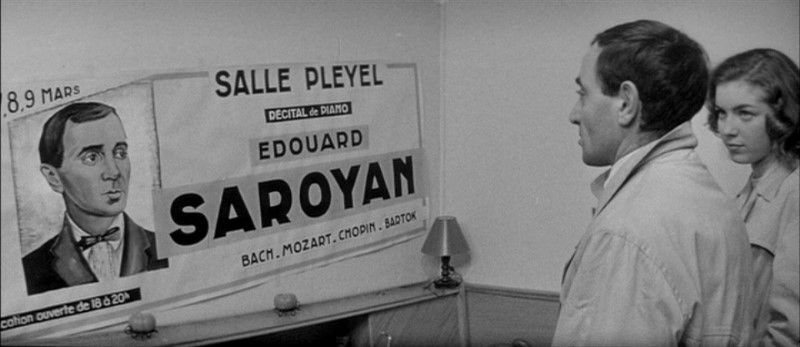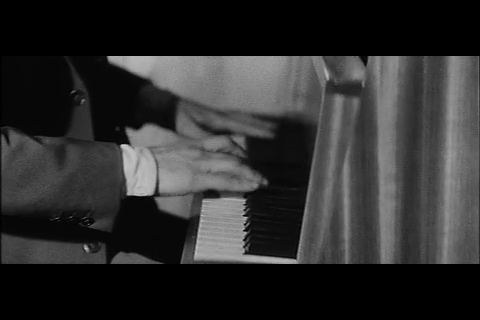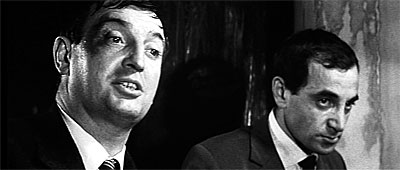SHOOT THE PIANO PLAYER (1960)
This was written in the summer of 2000 for a coffee-table book edited by Geoff Andrew that was published the following year, Film: The Critics’ Choice (New York: Billboard Books). — J.R.
Considering how romantic it is, how sad and funny and charming, it is a sobering fact that François Truffaut’s second feature –- and the first one that qualifies as a quintessential New Wave expression — was a disaster at the boxoffice. Indeed, if this eccentric adaptation of David Goddis’s 1956 crime novel Down There illustrated any general commercial principle, this may be that one subverts overall genre expectations at one’s peril. For Tirez sur le pianiste is a film noir that literally turns white (through such images as piano keys or a snowy hillside) when the plot is at its darkest, and one that sometimes interrupts the viewer’s laughter with a disquieting catch in the throat.
The opening sequence already sends out bewildering crossed signals. A man fleeing in panic through dark city streets at night collides with a streetlight, then finds himself talking quite calmly with a sympathetic stranger –- a character who exits the movie immediately thereafter -– about the latter’s love for his wife. Moreover, while the fluid and flexible black-and-white cinematography (by Raoul Coutard) is in the anamorphic process Dyaliscope, the ambience is cramped and cozy in the best low-budget tradition. Read more









